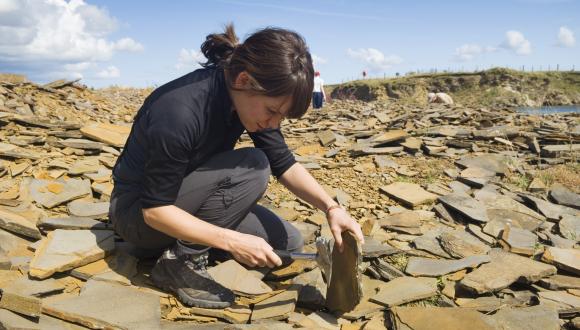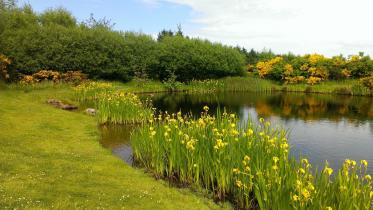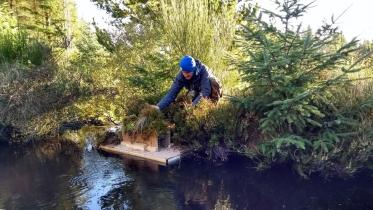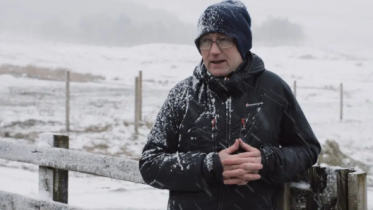NatureScot Research Report 1014 - A climate change risk-based assessment for nationally and internationally important geoheritage sites in Scotland including all Earth science features in Sites of Special Scientific Interest (SSSI)
This report assesses which of Scotland’s nationally and internationally important rocks and landforms are most at risk from climate change. It develops a risk-based approach for assessing future impacts of climate change on groups of similar geological and geomorphological features.
The assessment uses a systematic approach combining current understanding of how climate change will affect Earth Science features, and knowledge of the characteristics of these features in Scotland. Of the 650 plus Earth Science features notified in Scotland’s SSSIs, the report concludes that when it comes to risk from climate change impacts:
• 73% are likely to be fairly robust (at ‘medium’ to ‘low’ risk)
• 17% could be at moderate (‘medium-high’) risk and
• 10% could be at ‘high’ risk
Impacts include:
• increased erosion,
• coastal flooding,
• changes in rainfall and storminess,
• changes in vegetation cover,
• and reduced freezing of the ground in winter.
Though there are some ‘high’ risk rock and fossil-bearing features, the majority of features at risk are sediments and landforms created during the last Ice Age and those still actively forming today. This assessment is intended as a sound base from which to incorporate climate change planning for geoheritage features into climate change action plans, and could be adapted to be applicable internationally.
Pages: 52
Published: 2018
Document downloads
Disclaimer: Scottish Natural Heritage (SNH) has changed its name to NatureScot as of the 24th August 2020.
At the time of publishing, this document may still refer to Scottish Natural Heritage (SNH) and include the original branding. It may also contain broken links to the old domain.
If you have any issues accessing this document please contact us via our feedback form.






